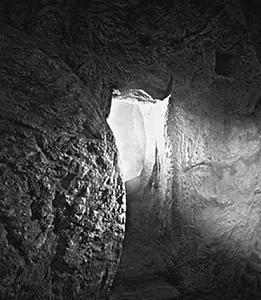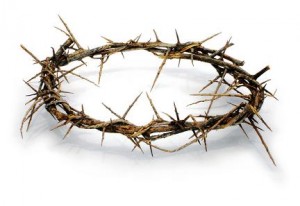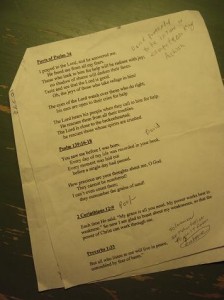It’s always good when Good Friday is over. We know Jesus was reconnected with his Father by the end of his life on the cross, because he committed his spirit to God. But what about the many questions we have about his death and resurrection?
The time between the crucifixion and the resurrection is full of mystery and questions without answers, like where did Jesus go after he died? Did he remain in the tomb until Sunday morning when the women came to fix up his body? Did he go some place in spirit, separate from his body? When did he report back to God the Father?
It’s like digging for treasure to ponder the answers. Until this year it hadn’t occurred to me that Jesus may not have bodily remained in the garden tomb in the time between Friday afternoon and Sunday morning. He may have left the tomb on Friday shortly after they laid his lifeless body on the stone slab there. We know he could pass through walls after he rose from the dead, so he could have walked through the stone walls of his tomb also.
But where would he have gone? Peter gives us a partial answer. He went to the place where dead souls were being held in some sort of bodies. It isn’t clear whether or not any people are still there today, but one thing we know from Peter is that Jesus preached to them then. He didn’t preach to the souls who believed in God and hoped for a Messiah, even though these may have seen him when he came to this place of the dead. He preached to “those who had disobeyed.”
Was this hell? Probably not. More than likely it was the place Jesus himself talked about when he described the lives of dead people who’s souls were still living, some in torment, others in comfort. Does this mean these people, the ones who had refused to believe in the one true God, had a second chance at salvation and heaven?
Maybe Jesus went there to fully experience what all dead people experienced at that time in history. He fully died, as a crucified man who had become the worst sinner of all by bearing our sins. Going to this mysterious place might have completed Jesus’ process of dying as a condemned sinner.
It’s possible his “sermon” there was more like a proclamation that the work of the cross had been completed. Salvation for sinners had been accomplished, and heaven had become a certainty for believers. One thing is sure; when Jesus arrived there, it was both terrifying and awesome for those who saw and heard him. What must he have said that day?
I crave the answers. Although I can only surmise now, one day I’m fairly sure I’ll be given the whole story with all the details. The one picture I love to ponder is the moment when Jesus returned to God the Father, presenting himself as the sinless one who’d been slain for the sins of the world and overcome death with resurrected life. Oh what joy must have passed between them at that moment! And God has been honoring Jesus every since.
All of it is a wonder to me, and I’m part of the drama, too! I’m one of those saved from eternal destruction as a result of Jesus’ death and resurrection. One day I’ll follow his lead. Nate already has. And for this unspeakable privilege, I will literally be eternally grateful.
“For Christ died for sins once for all, the righteous for the unrighteous, to bring you to God. He was put to death in the body but made alive by the Spirit, through whom also he went and preached to the spirits in prison who disobeyed long ago.” (1 Peter 3:18-20a)




